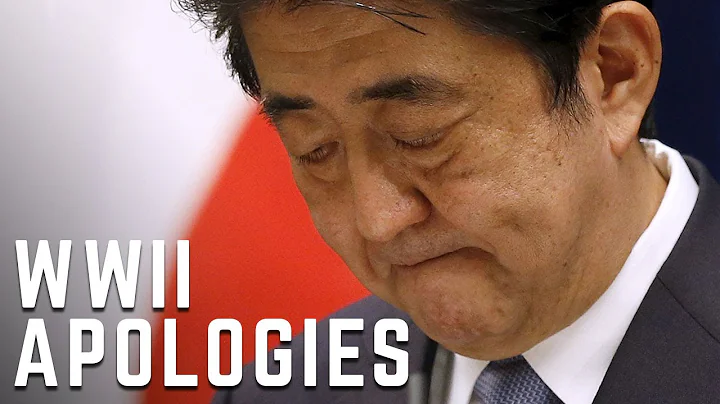
Taiyue Fourth Special Office Emergency Order
During the War of Resistance Against Japan and the War of Liberation, the people who inherited the war overcame difficulties, were brave and tenacious, and actively participated in the war to support the frontline. They were not afraid of sacrifice and made great contributions to the victory of the revolutionary war.
Beishi Guandi Temple is located in the south of Beishicun, 12 kilometers west of Jiyuan City. In June 1947, the War of Liberation shifted from strategic defense to strategic offensive. In order to cooperate with the strategic actions of Liu and Deng’s armies to advance into the Dabie Mountains, the central government decided to Chen Geng and Xie Fuzhi led the Taiyue Corps to cross the Yellow River from southern Shanxi and northern Henan, and then marched into western Henan to open up revolutionary base areas. Back then, when Chen Xie's army was on its way to Beishi Village in Chengliu Township, the source of its economic resources, a military depot was set up in Guandi Temple to ensure the logistics supply of the army.
In late July 1947, the leaders of the fourth district of Jiyuan County decided to establish a military station in Beishi Village, Chengliu Township, according to instructions from their superiors. The village cadres were responsible for the specific organization and implementation. Village chief Wang Longgui was appointed as station chief, and deputy village chief Lu Zhi was promoted to deputy station chief. After accepting the task, village cadres immediately held a meeting to study relevant matters. When establishing a military depot, the first thing to do is to choose the address of the military depot. After repeated studies, the village cadres believed that the military depot was most suitable to be located in Guandi Temple, because Guandi Temple was close to the highway, and the troop's crossing point was in the Guanyang area of and . It is dozens of kilometers away from Guandi Temple to Guanyang. The transportation is relatively convenient, and the space in front of the temple is relatively wide, which is convenient for carriages and horses to stay. Therefore, the address of the military depot was determined to be Guandi Temple.
According to the tasks assigned by superiors, in addition to arranging a house for storing flour, the military depot also has two tasks: one is to receive rice, noodles and firewood from the surrounding villages anytime and anywhere; the other is to start supplying the troops with flour. Due to the daily consumption, the masses must be organized to transport food to the two warehouses in Wushan (today's Sili Village, Sili Town) and Shiniu Village at any time to ensure the supply of food for the troops. Before starting to store grain, the village organized people to clean the three rooms in the temple from top to bottom, inside and out. Jiyuan is an old district, and the enthusiasm of the people after the revolution has been unprecedentedly high. Some came to deliver flour during the day, and some came to deliver firewood at night; some came on their shoulders, and some came on the backs of animals. In just two or three days, the temple was full of flour. In the open space outside the temple, loads of firewood piled up like mountains.
html One day in early August, Guandi Temple suddenly became lively. The vanguard of Chen Xie's army arrived for the first time. In order to rush on the road, the troops did not stop at the military station. The logistics staff carried some flour and set off in a hurry. The village cadres were very happy and excited because they had never seen so many troops passing through the village, and this time they saw their own troops. They forgot the fatigue of the past few days and stood at the gate of the temple, warmly greeting the rapidly advancing team. It took more than an hour for the vanguard to finish in a hurry.
In the next 10 days or so, troops passed by the military station every day. Some cooked in the military station, had a meal and then left; some still tied a tie, took some flour and continued on their way. One day at noon, the troops were eating. Suddenly, there was a burst of enemy aircraft over the Guandi Temple, and the bugler immediately blew the emergency air defense horn. The troops who were eating immediately entered air defense mode. Some hid in the surrounding cotton fields half a man deep, some crawled under the house, and some lay down under the big tree. In order to prevent enemy planes from bombing the grain warehouse of Guandi Temple, a military commander ordered the anti-aircraft machine gun to fire into the air. An anti-aircraft gun also raised its barrel and pointed its muzzle at the sky. The enemy plane flew at ultra-low altitude. Although it did not drop bombs, it fired at the ground from time to time with the machine gun equipped on the plane. Under the protection of the strong artillery fire of the military station, the enemy aircraft changed from flying at ultra-low altitude to circling at high altitude, and flew away after more than ten minutes. After several days of continuous rain and harassment by enemy planes, the military depot did not have much food left. In order to ensure logistical supplies, the military depot had to organize militiamen to brave wind and rain and walk on muddy roads to the Shiniu Warehouse to transport grain.Considering that it was raining and it was inconvenient for the troops to set up stoves to cook, the village cadres distributed the flour to the homes of the people in each village. Everyone made the flour into steamed buns, and then gathered them at the military station for the passing troops to eat.
Since the beginning of August, the Guandimiao Military Station has received a total of more than 100,000 troops, frontline militiamen, and migrant workers, successfully completing the glorious tasks assigned by the party.
In 1946, the Chengli people also actively participated in the former civilian team of Jiyuan County to cooperate with the People's Liberation Army. They participated in the battles of liberating southwest Henan and southwest Shanxi, and were responsible for tasks such as transporting military supplies and ammunition, rescuing the wounded, and transmitting intelligence. . In 1947, he also built roads, built ships, and transported supplies for Chen and Xie's army to forcefully cross the Yellow River.
In 1947, Jiyuan County issued an emergency order to establish a transportation station and set up a reception station in Libazhuang, Chengliu Town, to actively cooperate with superiors to solve problems such as food and firewood supply. Han Kangrong once crossed the Yellow River with Chen Xie's army and participated in the liberation of Luoyang and other battles. After returning home in 1948, he served as the station commander of Li Bazhuang Military Station, raising food, firewood, clothes and other supplies for the troops. In the same year, more than 10 young and middle-aged people, including Lu Yiyuan and Ji Side, were selected to raise food for the People's Liberation Army's campaign to liberate Linfen. They loaded the food and combat materials collected from various places onto iron wheeled carts, livestock carts, and rickshaws , and drove them across the mountains. It was transported to Xiaye Sanjiao Transfer Station and transported back and forth more than 10 times. In addition, in order to cooperate with the transportation of pre-support materials, villages in the jurisdiction also organized villagers, livestock and vehicles to build roads and set up temporary communication lines.
In October 1950, the central government made the strategic decision to "resist U.S. aggression, aid Korea, and defend the country." Jiyuan County carried out patriotism education for the militiamen. The ideological awareness of the militiamen in the region has increased unprecedentedly. Many militiamen are eagerly waiting for the call of the motherland. Actively join the army and fight. Every village actively responded to the central government's call, and every family wrote a "Patriotic Pact". The content of the pact is: when you need people, you need money, and when you need food, you donate food. At that time, the living conditions of the villagers were very difficult. Many villagers had no clothes or shoes to wear. Some of their clothes were tattered and had no materials to repair them. However, they still actively responded to the country’s call. Several companies collaborated to exchange materials to make military shoes, and some even made them together. If you can't even get the shoe materials, you go to work, do your best to make military shoes, and then donate them all to the country.

About the author: Cheng Rong, bachelor degree, member of the Municipal Writers Association, retired teacher. Likes to read. After retirement, he participated in the compilation of "Chengliu Town Chronicle" and served as a tutor in the writing training class for young writers in Dahe Literature.
Producer: Kong FanruLi Sihai
Reviewer: Liu Fan
Editor: Wang GuanghouJiang Yan
Editor: Chen Li Li Yong
The content of this article is original. Please indicate the source for reprinting: "Dahe Literature" (ID: daheliterature); Chief Legal Counsel: Lawyer Cui Sufang of Henan Lingfeng Law Firm; Editor WeChat: dahewenxue2020





















